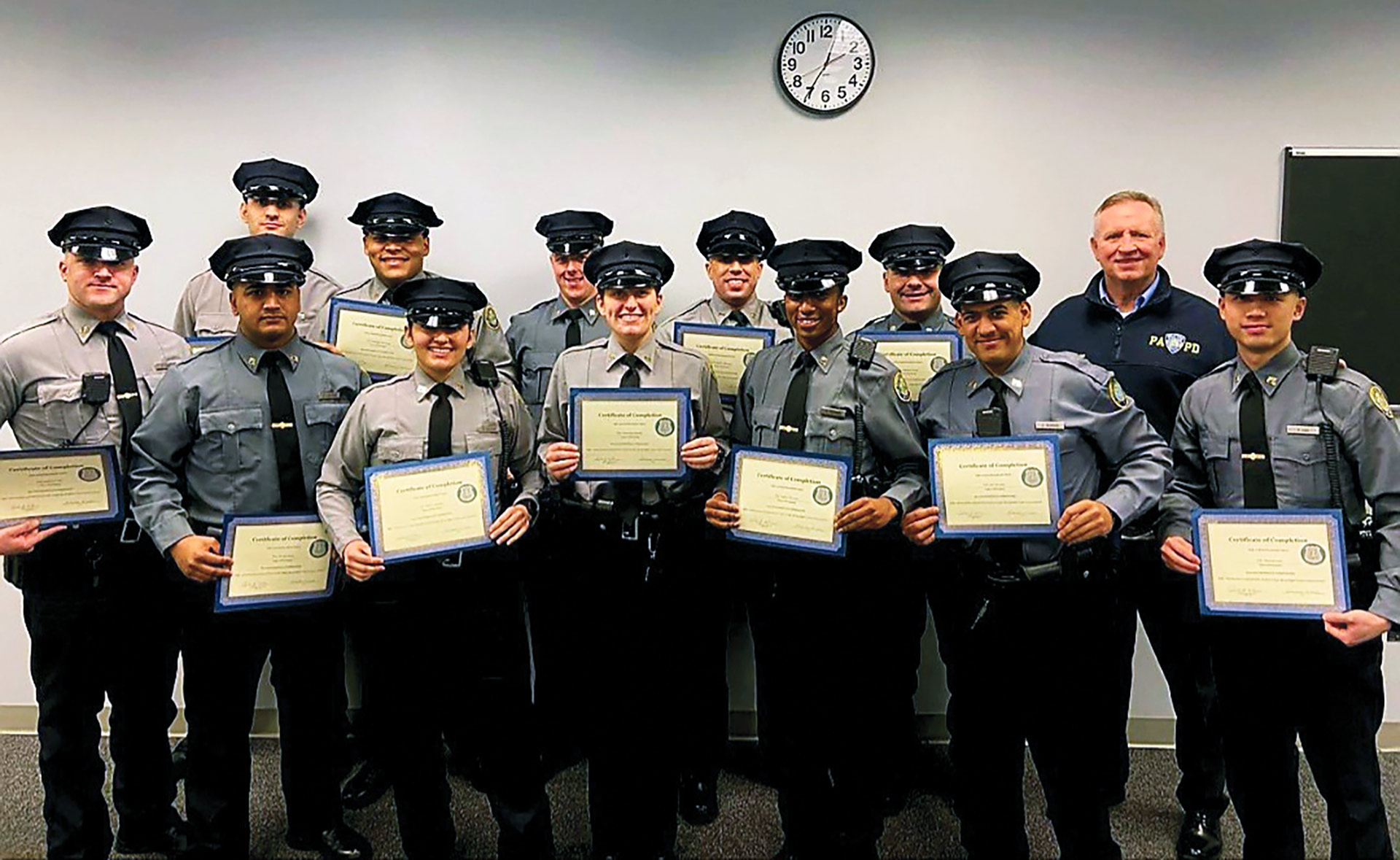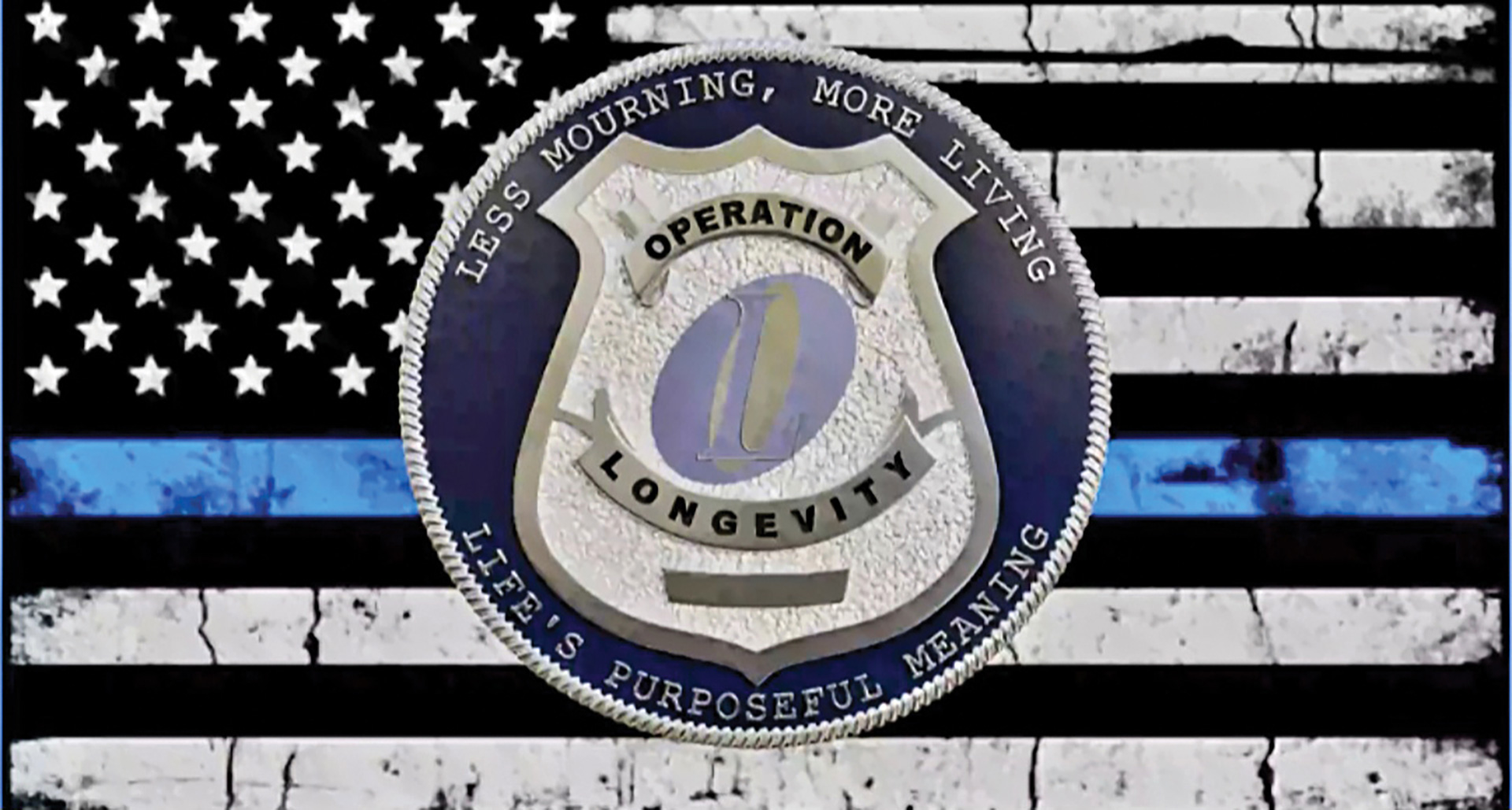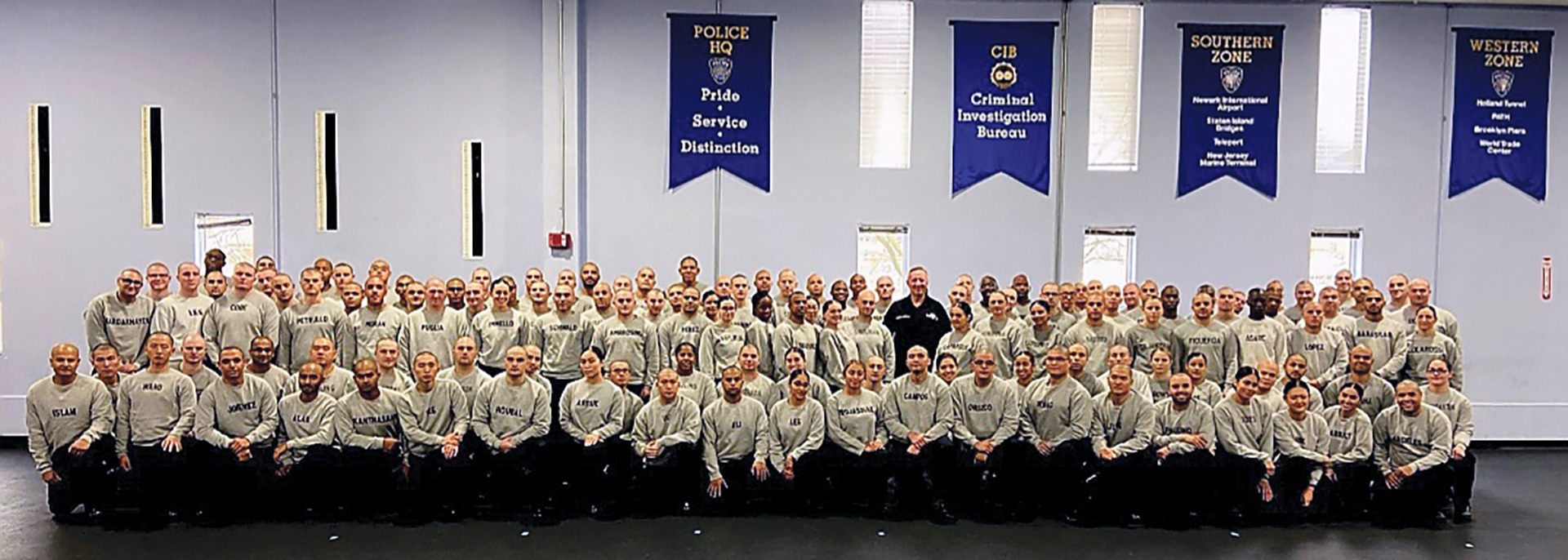

Dr. Peter Killeen is paving a new path toward police officer well-being, wellness and resilience by introducing his 21-Day “Call to Action” Coin Challenge to police recruits. Killeen’s program, part of his five-book Operation Longevity series, calls on recruits to perform daily tasks and actions that help bring understanding and insight to the importance of self-care, leading to the self-awareness of a recruit’s emotional, physical and spiritual well-being as they enter the world of law enforcement. Killeen’s novel approach of helping recruits strengthen their awareness of their inner self may result in better outcomes regarding mental health of police officers.
Noted American statesman and abolitionist Frederick Douglass said of preparation for a way forward from the trauma of slavery, “It is easier to build strong children than to repair broken men.” Is it possible that Douglass was saying, to have a better future, focus on the children? And, just as Graham Nash wrote in a famous Crosby, Stills, Nash and Young song, “Teach your children well, their father’s hell did slowly go by,” Killeen’s research led him to believe that introducing police recruits to a better understanding of themselves could result in fewer psychological burdens than those who preceded them carried.
Killeen says teaching recruits to understand “a mindful approach to wellness and resilience” should be part of academy instruction.
Killeen, a police psychotherapist and former police officer and Franciscan friar, has counseled police officers wounded by layers upon layers of crushing, job-related stress for more than 30 years. His expertise is from years of academic achievement and experience, yet there is another side to Killeen. As a young police officer in 1975, he responded to a terrorist bombing in the Central Terminal Building of New York’s LaGuardia Airport, where he waded through a sea of blood with the remains of 11 bodies and 74 horribly injured victims. The psychological trauma of that event eventually led to the end of his police career.
He reveals in his books, co-authored by Susan Shapiro, an author and motivational speaker,
how unprepared he was as a rookie police officer responding to such an extraordinary incident that left him with symptoms associated with post-traumatic stress. His feelings of loss, being lost and uncertainty mirrored the conditions experienced by veterans returning at the time from the Vietnam War.
Killeen says teaching recruits to learn and understand what he refers to as “a mindful approach to wellness and resilience” should be part of academy instruction for those entering law enforcement. Similar to a dermatologist who treats multitudes of middle-aged and older patients for various sun-exposure cancers that may have been avoided with preventative care earlier in their lives, Killeen says early care centered on the recruit’s understanding of his or her mind, body and spiritual being may result in a self-care that could produce better outcomes for police officers when dealing with post-traumatic stress. Killeen says the insight gained by this approach leads to a resiliency he describes as “bouncing back.”
Police officers will find themselves in situations throughout their careers that few people will face. Killeen said research reveals the average law enforcement professional will be involved in 50 to 60 critical incidents in their career. The bombing incident Killeen found himself in is not easily relatable to, but to Killeen it is real, a part of him and something that will never leave him. Psychological and physical wounds are similar in that an injury has occurred, yet we are conditioned to take care of our physical injuries, not so much our psychological wounds. Killeen said, “By helping the police recruit become aware of self-care, learn to express and embrace empathy and compassion, and have a greater understanding of their inner self, they will enter the profession more resilient and mindful of life as a law enforcement professional throughout their career.”

Killeen is not aware of any police academy in the country using a similar approach to officer wellness until 2020, when the Port Authority Police Academy included the 21-Day “Call to Action” Coin Challenge as a pilot program in the curriculum for its 119th Recruit Class. The Academy selected 12 recruits out of the class of 120 to participate in the three-week program that saw recruits completing a daily reading, breathing exercises and an action to improve physical, emotional or spiritual well-being. In addition, the recruits performed a daily random act of kindness. Killeen explained the importance of the daily act of kindness, saying such acts, which could be as simple as holding a door open for someone, done every day elicits positive hormones in the brain, helping the individual to have a positive outlook and view of the world. Killeen’s theory is, if police officers feel better about themselves, the less likely they are to harm themselves. This behavioral change is key to well-being, resilience and a positive psychology. The three-week program involves only one hour per week instruction, making it an easy fit into an academy schedule.
During the 119th Recruit Class Family Day, Killeen explained the 21-Day challenge to recruit families. One recruit’s father spoke up, saying, “This is fantastic, a therapist, clergyman and cop rolled into one teaching this to police recruits! Why don’t all departments do this?”
It seems the Port Authority Police Department (PAPD) picked up on that father’s comment when it scheduled Killeen’s program into the 120th Recruit Class curriculum. This time, though, the entire class of 129 PAPD recruits participated. The participation of a full academy class resulted in the same positive reception as the pilot group and actually took less time. Upon completion of the two three-week programs, Killeen had each recruit come to the front of the classroom and receive a certificate of completion, the 21-Day Challenge Coin and a handshake. Killeen said the certificate and coin are important because each validates a sense of achievement. It is the handshake, though, that solidifies the training with a very personal connection. A connection similar to a recruit’s look into themselves and seeing their worth and purpose on this earth.
As a psychotherapist, friar and cop, Killeen’s chosen paths were always about helping others. His experiences, which also included working in the World Trade Center Rescue and Recovery Mission as the stress counselor for the Port Authority Police Benevolent Association, the union representing Port Authority police officers, and his personal suffering have provided him a unique insight into the minds of police officers; how they think, react and bury their emotional wounds. Obviously, Frederick Douglass’ statement and Graham Nash’s song were not about police officers, but both do seem to coincide with Killeen’s theory that helping the police recruit become aware of self-care and the understanding of their inner self as they set out upon a career of helping others will be beneficial to all.
Learn more about Operation Longevity’s 21-Day “Call to Action” Coin Challenge by visiting operationlongevity.org or contacting Dr. Peter Killeen at info@operationlongevity.org.

As seen in the June 2023 issue of American Police Beat magazine.
Don’t miss out on another issue today! Click below:





